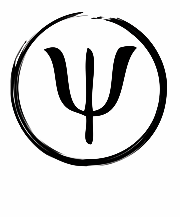THERAPY
Regarding psychotherapy, my treatment approach integrates both Western and Eastern solutions towards living a long, healthy, and productive life. Integration of mind, body, and spirit will be emphasized by strengthening your relationship with yourself and others, gaining insight into your thoughts, emotions, and actions, and focusing on your physical, emotional, relational and spiritual health, which are all key to well-being.
My goal is to facilitate your ability to overcome your various challenges or psychological issues you may be struggling with, not only achieving symptom relief, but also by creating a balanced and successful way of being with yourself, others, and the world.
Utilizing both conventional methods (often referred to as Western or modern) and integrative methods (often referred to as complimentary, holistic, traditional, or alternative), we will together help you build upon your already existing strengths to identify and achieve your therapy and life goals. Simultaneously, we will work together on successfully navigating through the weaknesses and symptoms that are inhibiting your growth.
Treatment specializations include, but are not limited to:
Mood Problems:
Depression
Mood swings
Grief and loss
Low self worth or esteem
Hopelessness
Isolation
Overly self critical
Anxiety Problems:
Stress management
Chronic worry
Sleep difficulties
Concentration difficulties
Panic attacks
Phobias
Obsessive-Compulsive (OCD)
Social anxiety or excessive shyness
Post-Traumatic Stress (PTSD)
Anger Problems:
Chronic irritability or frustration
Rage and destructive venting
Impulsivity
Passive-Aggressiveness
Blaming and rigidity
Resentment
Relationship Problems:
Couples therapy
Intimacy issues
Communication issues
Jealousy issues
Trust issues
Parenting and family issues
Conflict resolution
Divorce issues
Blended families
Addiction Problems:
Alcohol
Drug(s)
Internet
Sex
Food
Shopping
Gambling
Life Management:
Work problems
Career building
Life transitions
Time-Management and organization issues
Professional development and advancement
Spiritual development
Peak-Performance
Other Focuses:
Chronic pain
Chronic fatigue and low energy
Appetite or eating issues
Sleep difficulties
Concentration difficulties
Coping with medical or health concerns
Meditation
Methods include, but are not limited to:
Cognitive-Behavioral Therapy (CBT)
This therapy focuses on how thoughts, not necessarily situations or circumstances, effect our emotions and actions (behaviors). Hence, this therapy is designed to increase awareness of both thoughts and beliefs, and to clarify their origins and validity in order to facilitate healthier emotions and actions.
Mindfulness-Based Cognitive Therapy (What I call Zen Therapy)
Zen, here, refers to meditation and mindfulness training, but not in the form of a religious practice such as Buddhism. One does not need to be religious to practice awareness; one simply needs to be human. However, if one has a particular religious and/or spiritual path, practicing Zen will often enhance the experience.
Interpersonal (Relational) Therapy
This therapy focuses on interpersonal issues causing problems with family, friends, or work. The patient’s history or past is often explored to uncover what unhealthy relational styles were learned with the goal to rectify old patterns and implement better ways in relating with themselves and others.
Existential-Humanistic Therapy
This therapy is geared toward facilitating one’s growth potential by focusing on already existing strengths. Humanistically, this method emphasizes the individual’s uniqueness and capabilities. Existentially, fostering presence and creating meaning, purpose, and values are emphasized. Also, illuminating one’s freedom to choose actions (or not to choose), and the responsibility to act out these choices are key.
Life Coaching
Life coaching, sometimes referred to as executive coaching, is a semi-new form of helping others obtain clarity and balance in their work and personal lives. This approach is more about techniques than about therapy, and is designed for already healthy people to achieve better satisfaction and peak performance. Although this approach can be part of therapy, coaching by itself is not considered psychotherapy. What differentiates therapy from coaching is whether or not a person has a psychiatric diagnosis. Please refer to consulting for more information.
Integrative or Eclectic
Rarely are any of the above therapies used exclusively as there can be many variables leading to particular symptoms. Certain problems will benefit better from particular therapies, and some people may benefit more from certain therapies based on interest, goals, and life circumstances. In essence, therapies are often blended together seamlessly instead of utilizing only one approach, hence, integrative.
Finally, what often creates a successful therapeutic outcome is the relationship between the therapist and patient, and not necessarily the therapy modality by itself. Time and time again, research consistently finds that one's positive connection with their therapist (the therapeutic relationship) leads to better outcomes. Hint: if you do not feel connected to your therapist, discuss it with them and/or find a new provider.
